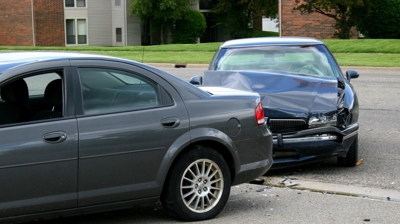
Truck Accidents vs. Car Accidents in Tampa
Understanding the Legal Differences
The Tampa Bay area's bustling roadways—from the I-275 corridor to Dale Mabry Highway—see thousands of vehicles daily. While both truck and car accidents can result in serious injuries, the legal landscape surrounding these incidents differs significantly. Understanding these distinctions is crucial if you've been involved in a collision.
Size, Impact, and Severity
The most obvious difference between truck and car accidents is the sheer size disparity. Commercial trucks can weigh up to 80,000 pounds when fully loaded, compared to the average passenger vehicle at 4,000 pounds. This 20-to-1 weight difference means:
- Greater force of impact: Truck collisions typically result in more severe injuries, including traumatic brain injuries, spinal cord damage, and multiple fractures
- Longer stopping distances: An 18-wheeler traveling at 65 mph needs approximately 525 feet to stop, compared to 316 feet for a passenger car
- Higher fatality rates: According to NHTSA data, occupants of passenger vehicles account for the majority of fatalities in truck-involved crashes
Federal Regulations vs. State Traffic Laws
Truck Accidents: Federal Oversight
Commercial trucking operates under strict federal regulations enforced by the Federal Motor Carrier Safety Administration (FMCSA):
- Hours of Service (HOS) rules: Drivers must follow mandatory rest periods and cannot drive more than 11 hours after 10 consecutive hours off duty
- Maintenance requirements: Commercial vehicles must undergo regular inspections and maintain detailed maintenance logs
- Drug and alcohol testing: Mandatory random testing, post-accident testing, and reasonable suspicion testing
- Weight restrictions: Limits on gross vehicle weight and axle weight
- Electronic Logging Devices (ELDs): Required since 2017 to track driving hours automatically
Violations of these federal regulations can be critical evidence in establishing liability. A truck accident case may require examining:
- Driver logs and ELD data
- Maintenance and inspection records
- Drug test results
- Black box (ECM) data
- Company safety records and FMCSA compliance history
Car Accidents: State Law Focus
Standard car accidents in Florida are primarily governed by state traffic laws and insurance regulations:
- Florida's no-fault insurance system: Personal Injury Protection (PIP) covers initial medical expenses regardless of fault
- Serious injury threshold: You must meet Florida's "serious injury" threshold to step outside the no-fault system and pursue a claim against the at-fault driver
- Comparative negligence: Florida uses a modified comparative negligence system where your recovery is reduced by your percentage of fault
Learn more about car accident claims in Tampa →
Multiple Liable Parties vs. Individual Drivers
Truck Accident Liability: A Complex Web
Truck accident cases often involve multiple potentially liable parties:
- The truck driver: For negligent driving, HOS violations, or driving under the influence
- The trucking company: For negligent hiring, inadequate training, pushing drivers to violate HOS rules, or failure to maintain vehicles
- The cargo loading company: For improper loading that caused the truck to become unstable
- The truck or parts manufacturer: For defective brakes, tires, or other equipment failures
- The maintenance company: For inadequate repairs or inspections
- The leasing company: If the truck was leased
This complexity means truck accident investigations must be thorough and immediate. Critical evidence like driver logs, maintenance records, and black box data can be lost if not preserved quickly through a spoliation letter.
Car Accident Liability: More Straightforward
Most car accident cases involve:
- The at-fault driver(s)
- Potentially the vehicle owner (if different from the driver)
- In rare cases, a manufacturer (product liability)
While simpler in structure, determining fault can still be complex, especially in multi-vehicle pileups common on Tampa's highways during rush hour or in adverse weather.
Insurance Coverage Differences
Truck Accident Insurance: Higher Policy Limits
Federal law requires commercial trucks to carry minimum insurance coverage of:
- $750,000 for trucks hauling non-hazardous freight
- $1 million to $5 million for trucks carrying hazardous materials
These higher policy limits reflect the greater potential for catastrophic damages. Many trucking companies carry umbrella policies that extend coverage even further.
Car Accident Insurance: Florida's Minimum Requirements
Florida requires only:
- $10,000 in Personal Injury Protection (PIP)
- $10,000 in Property Damage Liability (PDL)
Note that Florida doesn't require bodily injury liability coverage, though it's highly recommended. This means many at-fault drivers may be underinsured or uninsured, making Uninsured/Underinsured Motorist (UM/UIM) coverage critical for your own protection.
Evidence Collection and Preservation
Truck Accidents: Time-Sensitive Documentation
Truck accident cases require immediate action to preserve evidence:
- Electronic data: ELD records, GPS data, and engine control module (black box) data may be overwritten
- Driver logs: Both electronic and paper logs must be secured
- Maintenance records: Inspection reports, repair invoices, and service schedules
- Company policies: Safety manuals, training records, and disciplinary files
- Video footage: Dashcam, truck-mounted cameras, and traffic cameras
- Witness statements: From other motorists, especially other truck drivers who understand industry standards
Your attorney should send a spoliation letter within days of the accident to legally require all parties to preserve evidence.
Discover how we handle truck accident cases →
Car Accidents: Standard Documentation
While less complex, car accident cases still require:
- Police reports
- Photographs of vehicle damage and the accident scene
- Witness contact information
- Medical records documenting injuries
- Insurance information from all parties involved
Investigation Requirements
Truck Accident Investigations
Investigating a truck accident often requires:
- Accident reconstruction experts: To analyze black box data, calculate speeds, and determine fault
- Trucking industry experts: To identify regulation violations and industry standard breaches
- Medical experts: Given the typically severe nature of injuries
- Economic experts: To calculate lost earning capacity for catastrophic injuries
- Vocational rehabilitation experts: When victims cannot return to their previous occupation
Car Accident Investigations
While potentially less complex, car accident investigations may still benefit from:
- Accident reconstruction in disputed liability cases
- Medical experts for serious injuries
- Economic analysis for long-term disability claims
Settlement Timelines and Litigation
Truck Accidents: Longer, More Complex Process
Truck accident cases typically take longer to resolve due to:
- Multiple parties and insurance companies involved
- Complex federal regulations requiring expert analysis
- Higher damages justifying more thorough investigation
- Corporate defendants with legal teams actively defending claims
- More extensive discovery process
Many truck accident cases proceed to litigation, though substantial settlements are possible with strong evidence and experienced representation.
Car Accidents: Potentially Faster Resolution
Car accident claims may resolve more quickly, especially when:
- Liability is clear
- Injuries are well-documented
- Insurance coverage is adequate
- The at-fault driver accepts responsibility
However, serious injury cases or disputed liability can extend the timeline significantly.
Common Causes: Industry-Specific vs. General Negligence
Common Truck Accident Causes
- Driver fatigue: Despite HOS regulations, pressure to meet deadlines leads to violations
- Inadequate training: Trucking companies may rush drivers through training to fill driver shortages
- Improper maintenance: Brake failures, tire blowouts, and mechanical issues from deferred maintenance
- Overloaded or improperly loaded cargo: Causing loss of control or cargo spills
- Distracted driving: Despite regulations prohibiting handheld device use
- Aggressive driving: Speeding or following too closely given the truck's stopping distance limitations
Common Car Accident Causes in Tampa
- Distracted driving: Texting, phone calls, eating while driving
- Speeding: Particularly on I-275, I-4, and the Veterans Expressway
- Impaired driving: DUI crashes remain a persistent problem
- Aggressive driving: Road rage, tailgating, and unsafe lane changes
- Weather-related: Sudden afternoon thunderstorms creating hazardous conditions
- Tourist unfamiliarity: Visitors unfamiliar with Tampa's roadways and traffic patterns
Statute of Limitations
Both truck and car accident cases in Florida are subject to a two-year statute of limitations for personal injury claims (recently reduced from four years for accidents occurring after March 24, 2023). However:
- Truck accident investigations should begin immediately due to evidence preservation concerns
- Some exceptions may extend or shorten this deadline
- Missing the deadline typically means losing your right to compensation entirely
Tampa-Specific Accident Hotspots
Understanding where accidents commonly occur can help you stay alert:
- I-275 corridor: High-speed crashes and truck traffic heading to the Port of Tampa
- I-4 through downtown: Consistently ranked among the most dangerous highways in America
- Dale Mabry Highway: Heavy commercial and commuter traffic
- Kennedy Boulevard: Mix of local and through traffic
- Gandy Boulevard: Connecting Tampa and St. Petersburg
- Areas around Tampa International Airport: Unfamiliar drivers and rental vehicles
What to Do After an Accident in Tampa
Regardless of whether you're involved in a truck or car accident:
- Seek immediate medical attention: Some injuries aren't immediately apparent
- Call law enforcement: A police report creates an official record
- Document the scene: Photos, videos, witness information
- Don't admit fault: Even apologizing can be interpreted as accepting liability
- Notify your insurance: But be cautious about recorded statements
- Consult an attorney: Before accepting any settlement offer
Why Legal Representation Matters
For Truck Accidents
The complexity of federal regulations, multiple liable parties, and corporate legal teams make experienced representation essential. Trucking companies and their insurers often deploy investigators to the scene within hours, working to build a defense. You need an attorney who can match their resources and expertise.
For Car Accidents
Even "simple" car accidents can become complicated when:
- The other driver is uninsured or underinsured
- Liability is disputed
- Your injuries are more serious than initially apparent
- The insurance company offers an inadequate settlement
- You're unable to work due to your injuries
Moving Forward After Your Accident
Whether you've been involved in a truck accident or car accident in Tampa, understanding these legal distinctions is the first step toward protecting your rights. The differences in regulations, liable parties, insurance coverage, and investigation requirements mean that your approach to each type of case must be tailored accordingly.
The most important action you can take is to consult with an experienced attorney who understands both the unique challenges of truck accident litigation and the nuances of Florida's car accident laws.
- Have you been injured in a truck accident? Learn how we can help with your truck accident claim →
- Involved in a car accident? Discover your options for car accident compensation →
Ready to discuss your case? Call us for a free consultation. We'll review your situation, explain your legal options, and help you take the first steps toward fair compensation.






